There is no limit to the skills and knowledge that students can master throughout their time in school. From learning how to study to practicing relevant skills for a specific subject, teachers and students have a lot to learn together! Students with learning differences like dyslexia may need additional help with a beneficial set of skills known as executive function. Executive functioning skills include essential mental abilities like working memory, flexible thinking, and self-control that can significantly impact how students can succeed in school and beyond. Read below to learn more about executive functioning skills and why they matter.
Our Blog
5 Takeaways from Our Webinar – Dyslexia: The Neuroscience of Early Identification and Intervention
Webinars consistently offer excellent opportunities to dive deeper into a variety of different subjects, especially in the world of education. The Schenck School partnered with ReadSource, IDA-GA, BrainLENS, Literacy How, and The Georgia Department of Education to present an overview about the neuroscience of dyslexia and how early identification and intervention have a positive impact. Dr. Fumiko Hoeft and Dr. Margie Gillis presented recent findings in education, psychology, neuroscience, and genetics to support this conclusion. Watch the webinar in its entirety here or read below to learn about five key takeaways from the presentation!
IEP vs. 504 – What’s the Difference?
To ensure students with learning differences get the precise help they need, parents and teachers must understand what accommodations or interventions are available. Two options that include common classroom accommodations used for students with learning differences are the individualized education plan and the 504 plan. While these educational plans can be helpful for certain students, they cannot be used interchangeably. Read below to learn more about the differences between an IEP and a 504 plan with help from ReadSource.
Tips to Prevent Summer Learning Loss
The summer holidays are often a welcome break for teachers, parents, and students to enjoy some free time and relaxation. However, with decades of research highlighting the potential consequences of summer learning loss, parents and educators may feel a sense of panic as the summer approaches. But the loss of academic skills is nothing to worry about as long as parents know what to look for! All of the knowledge that students have acquired during the school year can continue to grow over the summer, even if they aren’t in the classroom. Read below to learn more about summer learning loss and how to keep students’ skills sharp through the break.
What Does Orton-Gillingham Teacher Training Look Like?
Even as the summer approaches, teachers know that their job is never really done. There are always more lesson plans to create, new teaching strategies to understand, and groundbreaking research to comprehend. Educators can keep up their skills regardless of the time of year thanks to specialized Orton-Gillingham teacher training. Learn more about what to expect from online Orton-Gillingham training and how ReadSource can help parents, teachers, and individuals make the most of these training courses.
Tips to Help Parents and Teachers Identify Dyslexia
Parents and teachers are always looking out for the best interest of their students. And with the prevalence of dyslexia and other reading struggles, parents and teachers play a significant role in recognizing some of the early signs of dyslexia. Ideally, prerequisite reading skills are taught during preschool and any irregularity in these skills can be addressed. However, when students enter elementary school, language or reading deficiencies that may have gone unnoticed in preschool become more recognizable if adults know what to look for. Whether in the classroom or at home, teachers and parents who are able to identify signs of dyslexia ensure these children get the interventions they need to read successfully. Read below to learn about tips that help parents and teachers identify dyslexia.
Benefits of Teacher Training for Dyslexia
Educators have an extraordinary opportunity to make a difference in the lives of children each and every day. With this honored position in kids’ lives, teachers also have a desire and responsibility to stay up to date on the best practices for each subject. Teachers can improve their teaching skills through opportunities for continuing education, although it may be difficult to know which teacher training course offers the most benefits for an educator. Read below to learn about some of the benefits of teacher training for dyslexia and how it helps all students–even those without dyslexia!
Advocating for a Dyslexic Student Through Online and In-Person Learning
Regardless of the learning environment, advocacy is an essential component of educating students with learning differences. Dyslexic students and their parents often need to understand and express their unique educational requirements to ensure they get the best support. And although advocacy is important, it is not always easy! Parents of students with learning differences may feel intimidated or uncomfortable when advocating for their child, but they are setting an excellent example for all children to be vocal about what they need to succeed in and out of the classroom. Read below to learn more about advocating for a dyslexic student through online and in-person learning.
Tips and Tricks for Using the Dyslexia Font and Other Assistive Technologies
With technological advances and an increased awareness of dyslexia, new assistive technologies are opening doors for dyslexic individuals in and out of the classroom. Advances in technology like intentionally designed fonts and state-of-the-art software programs allow students to overcome the challenges of dyslexia and learn more independently. However, accessibility and awareness of available technologies may still be an issue in some communities. ReadSource breaks down some of the most helpful assistive technologies for dyslexia and includes tips and tricks so each dyslexic student can make the most of the tools available to them.
Benefits of a Dyslexia Treatment Program
Each dyslexia intervention is designed to maximize the benefits for the individual and optimize their reading remediation depending on their unique needs. In many cases, an experienced tutor may be able to provide reading support that can help a dyslexic individual overcome their reading struggles. For some students, however, an immersive dyslexia treatment program may offer benefits that other interventions may not be able to provide. Read below to learn about some of the advantages of an immersive dyslexia treatment program and when this may be more beneficial than tutoring.
















